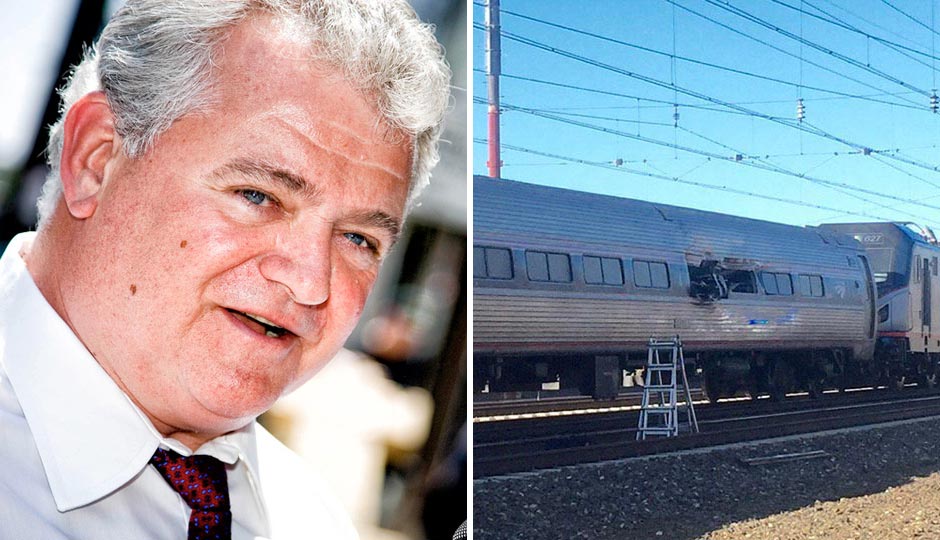Bob Brady: Miscommunication May Be to Blame for Amtrak Crash

U.S. Rep Bob Brady; photo by Jeff Fusco. Amtrak photo by passenger Glenn R. Hills Jr. | @glennhills
U.S. Rep. Bob Brady spent several hours touring the wreckage of Amtrak Train 89 with officials on Sunday in Chester, Delaware County.
After eyeing the crash site, Brady surmised that human error might have played a role in the horrific accident that claimed the lives of two longtime Amtrak employees and sent more than 30 passengers to local hospitals with minor injuries.
“It’s got to be some kind of lack of communication issue,” he said. “Either the dispatcher didn’t let the backhoe operators know that a train was coming, or they didn’t let the train know that the backhoe was out there.”
Brady said the train — which was headed from New York City to Savannah, Georgia — was traveling at approximately 120 miles an hour when it slammed into the backhoe, killing two workers who were operating the equipment.
Neither Amtrak officials nor the National Transportation Safety Board have identified the victims, but Brady said both were veteran Amtrak employees who were working a regularly scheduled shift.
“One had 40 years on the job, and the other had 20 years,” he said. “It’s a shame two men had to lose their lives.”
SEPTA officials said earlier today that they’d been notified by Amtrak that a crew was working in the area. SEPTA uses the same set of tracks for its Wilmington-Newark line.
For its part, the NTSB offered little in the way of new information during a 5:30 p.m. press briefing. One NTSB official said the agency had secured “event data” from the train, and was sending it to a lab in Washington, D.C., for analysis. Video footage will also be reviewed.
Beyond that, the official declined to answer specific questions about the work that was being done on the track and whether the workers or the train conductor had been alerted to the other’s presence.
Brady said the front engine was the only part of the train to leave the tracks.
“The train actually stopped about a mile after it got hit,” he said. “The first car, the quiet car, took the brunt of the damage.”
Brady said when he was informed of the accident, which occurred shortly before 8 a.m., his first thought was: “Jesus Christ, again?”
Amtrak Train 188 derailed in Frankford last May, claiming the lives of eight passengers and injuring more than 200 others. “That was one end of my district, and now this crash today is on the other end,” Brady said. “I just thought, ‘What’s happening here?'”


